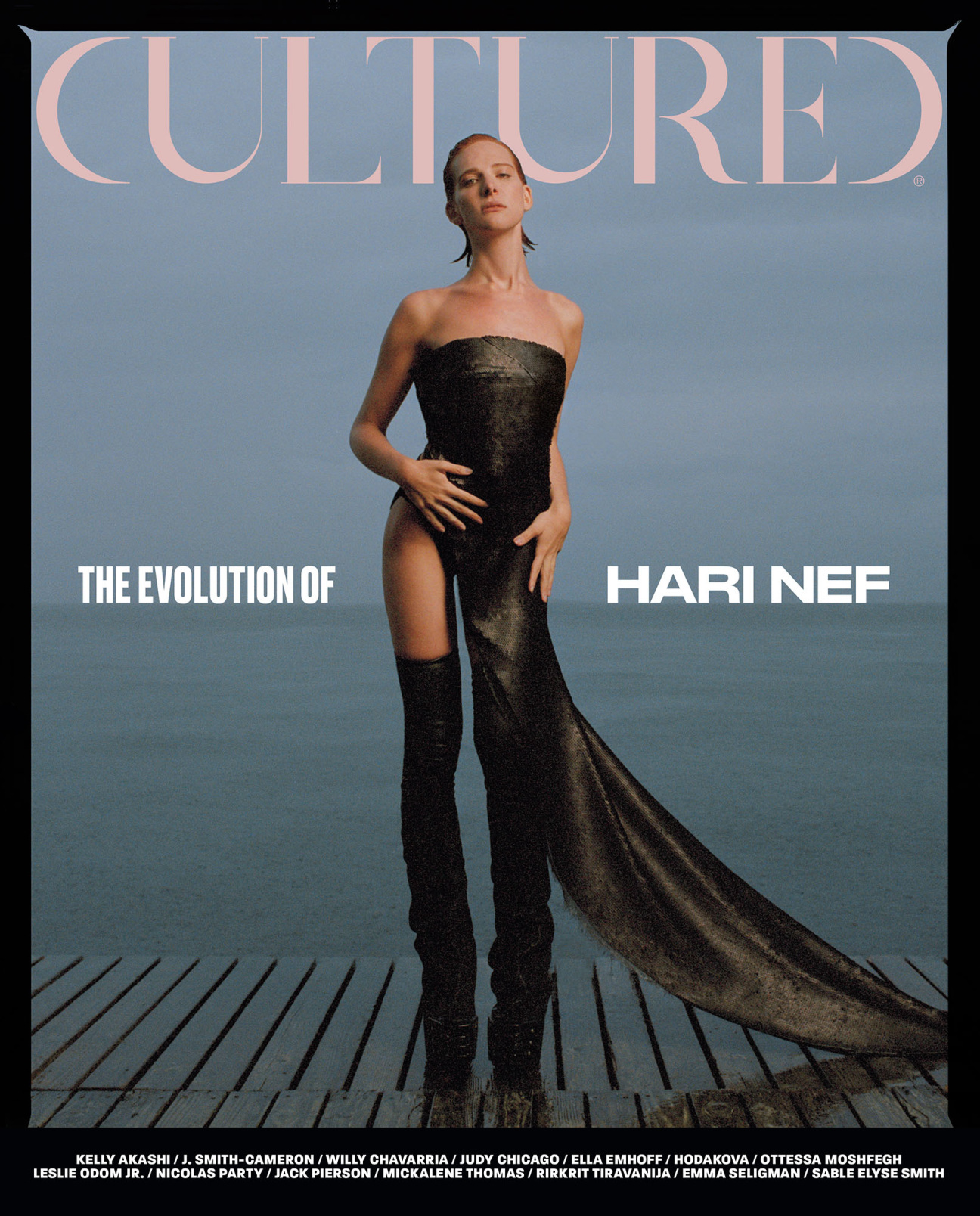
When they meet on Zoom, Hari Nef and Troye Sivan are in different worlds—Nef bronzed and bright- eyed from a month-long retreat to Fire Island, and Sivan perched by the radiator, cranked full blast, in his Melbourne home. The pair became friends amid the political tumult of 2016, when they attended a string of protests together. At the time, Nef had just landed her breakout television role, and Sivan, a newcomer to New York, was fresh off his first international tour. The pair, both devotees of the fashion world, have held onto each other ever since, regardless of time zones and tours. As Sivan prepares for the release of his third album, Something to Give Each Other, next month, and Nef prepares for a busy fall, the pair connect to reflect on the strength of their friendship, the eras—personal and stylistic—that they’ve seen each other through, and the art of saying less.
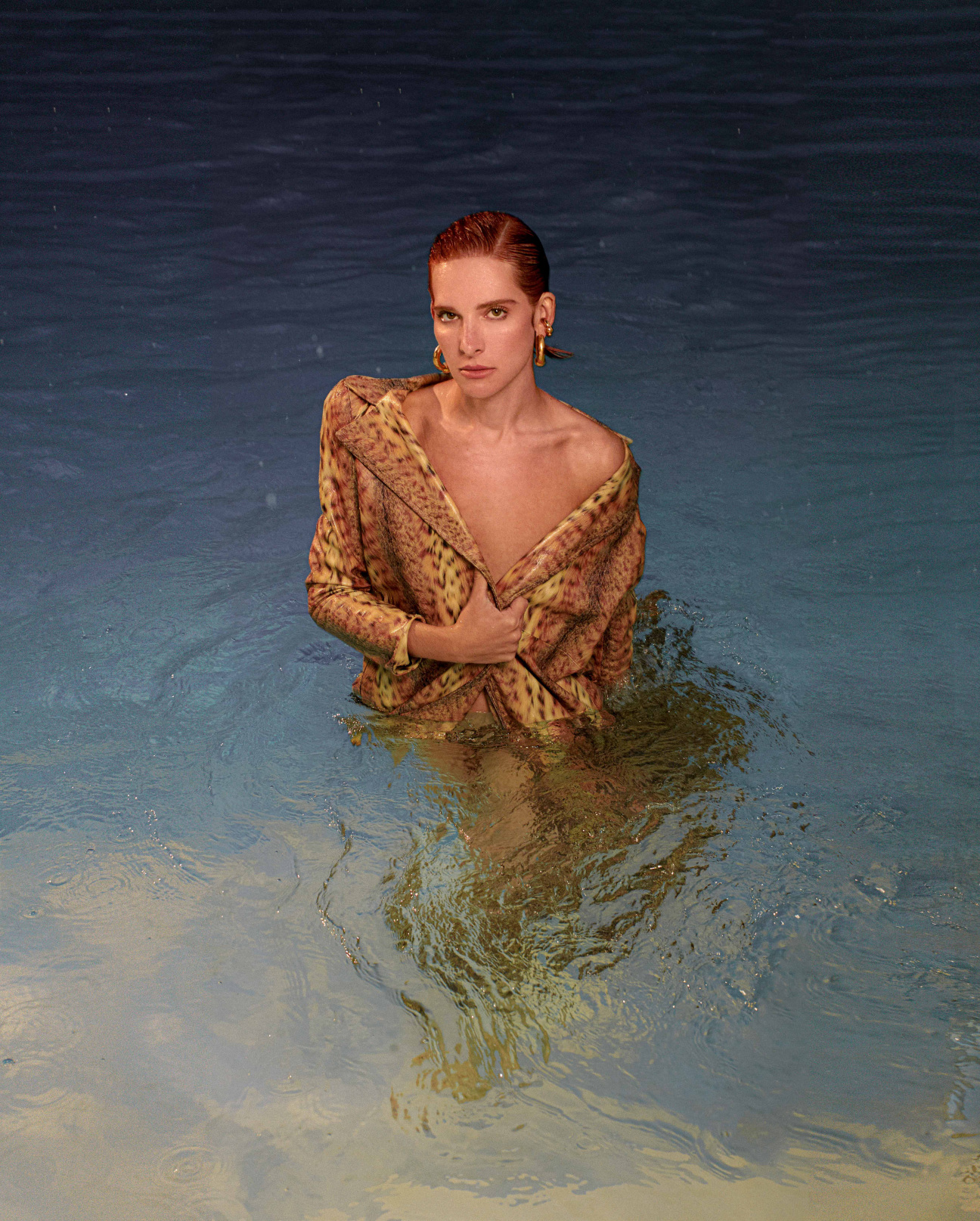
TROYE SIVAN: We’ve known each other forever. It’s been cool to see you through all these different phases of life.
HARI NEF: When we met, we were experimenting with our work. I learned a lot from watching you onstage and seeing you contend with all those eyes on you, and on your personal life and identity. I was like, “He just wears [it all] like a T-shirt and jeans.”
SIVAN: One thing I notice when I look back at photos of us from that time is how differently we used to express ourselves through fashion. I use the word “fashion” loosely because I used to wear the ugliest clothes. How has your sense of style evolved over the years, and how much effort does it take to look so effortless?
NEF: Let me reveal my secrets to you! I’ve always been attracted to fashion as something that speaks before I do. Something I’ve been telling myself this year is, Say less. Fashion, if you are specific and intentional with it, allows you to say less. In preschool, I was obsessed with this pink dress in the dress-up chest—I needed that pink dress. I don’t know where that fab feeling comes from—it feels like a girl thing, a gay thing.
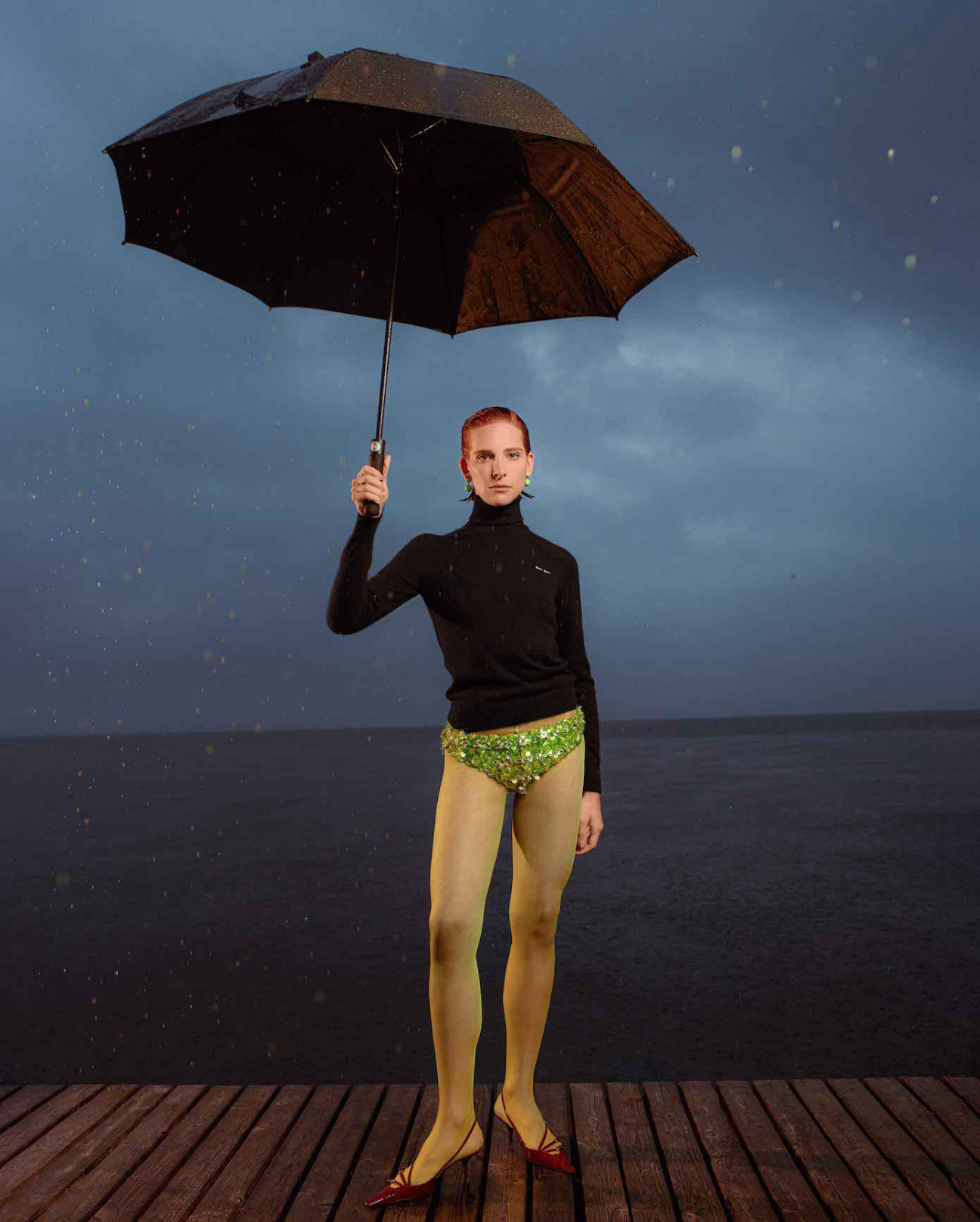
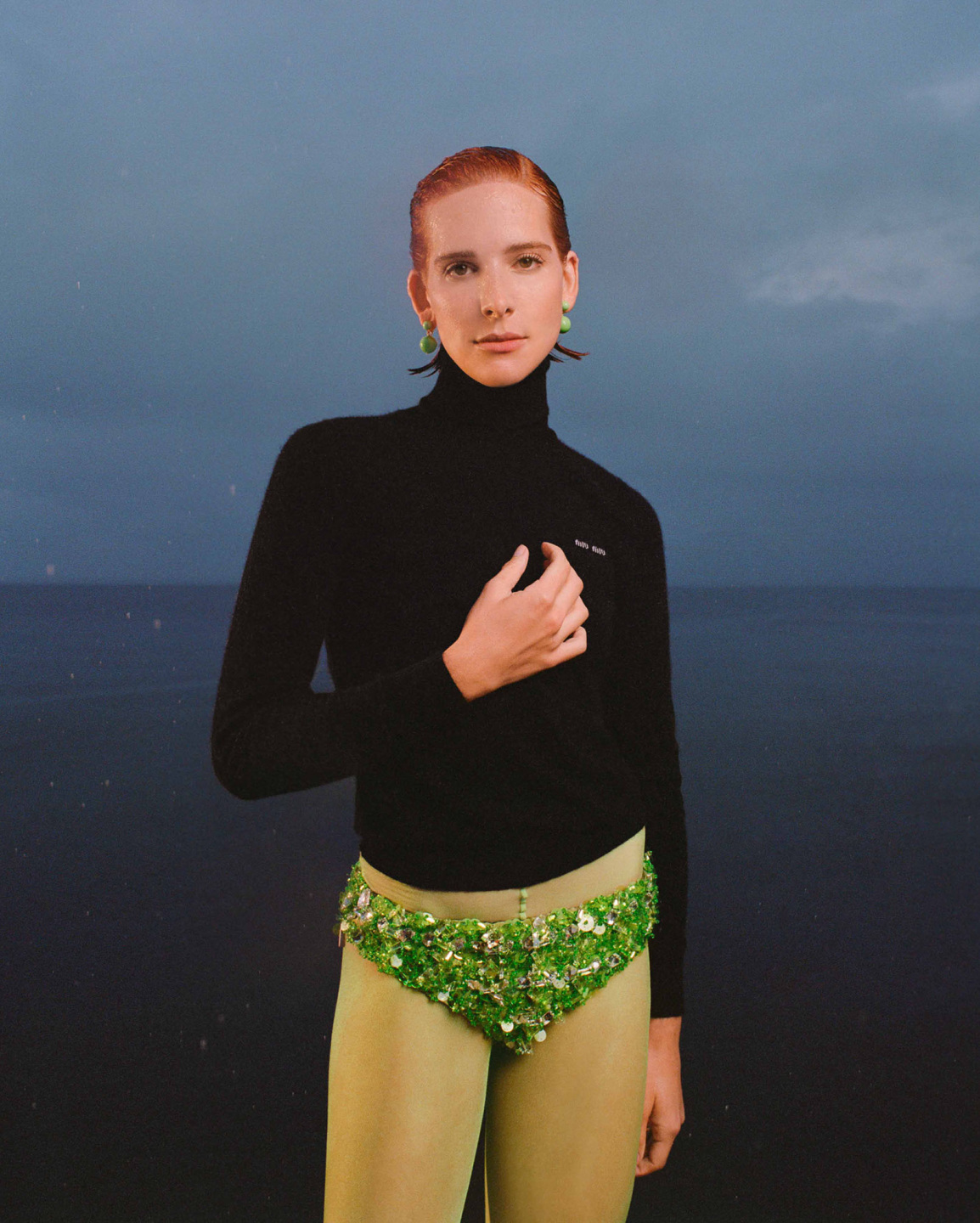
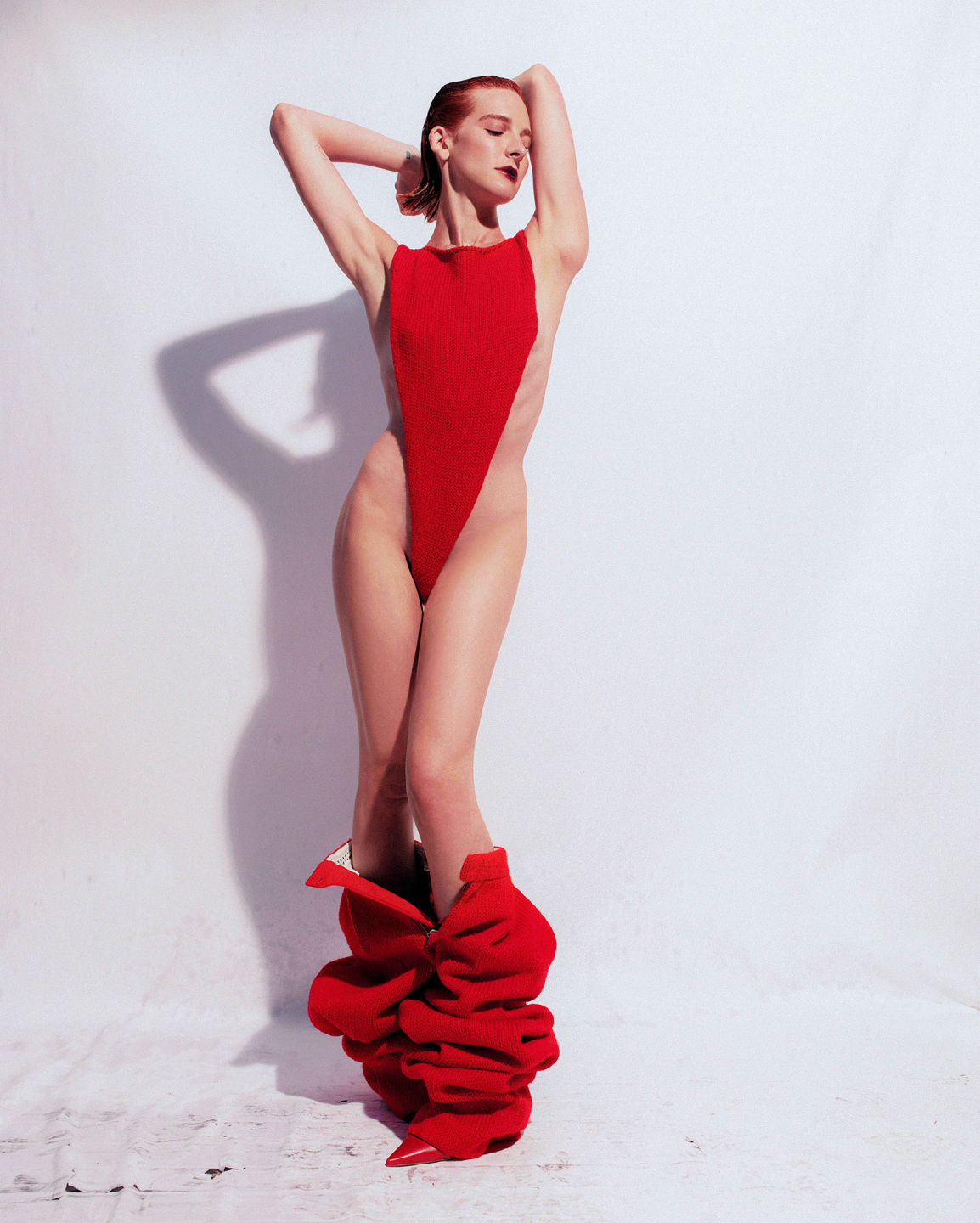
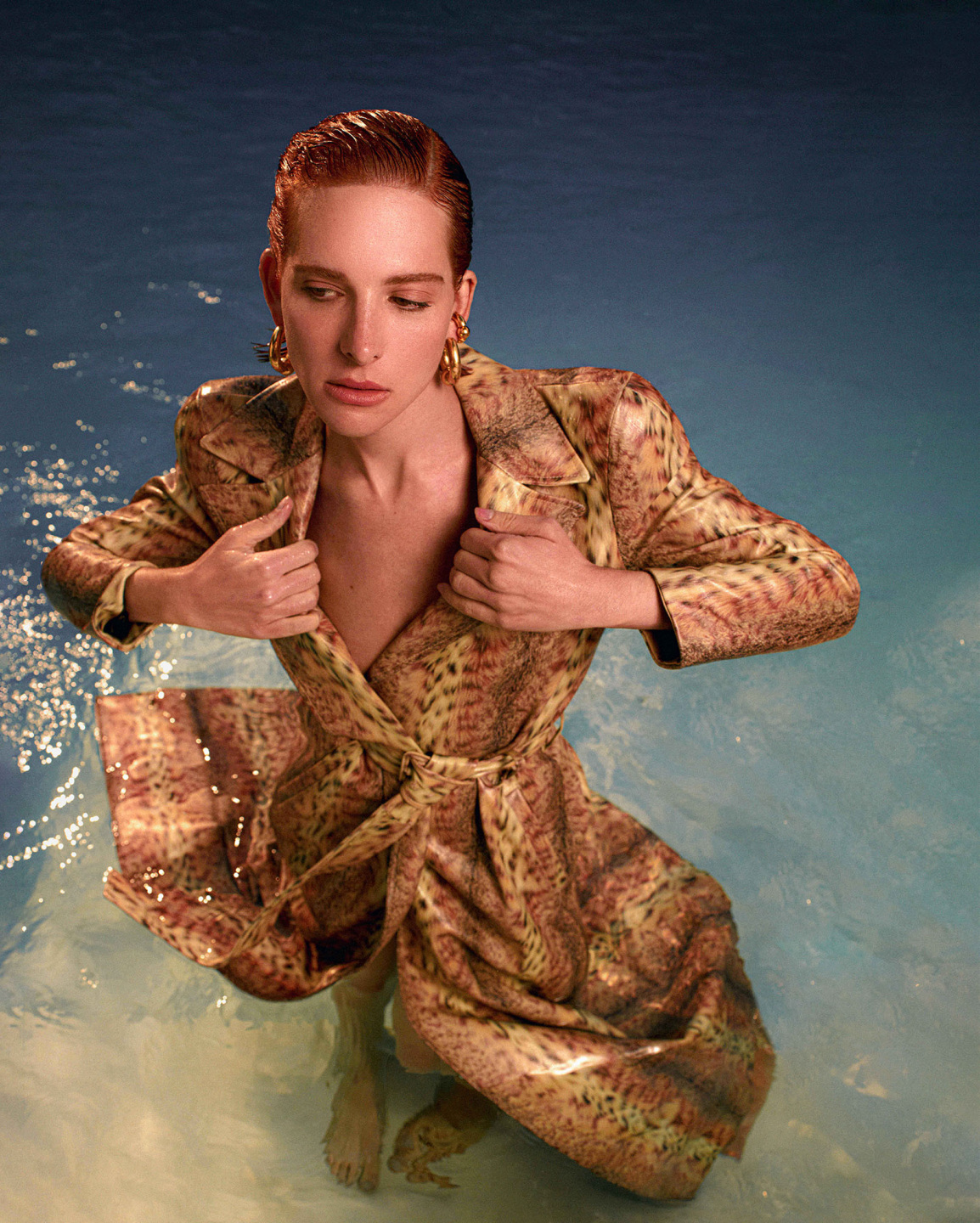
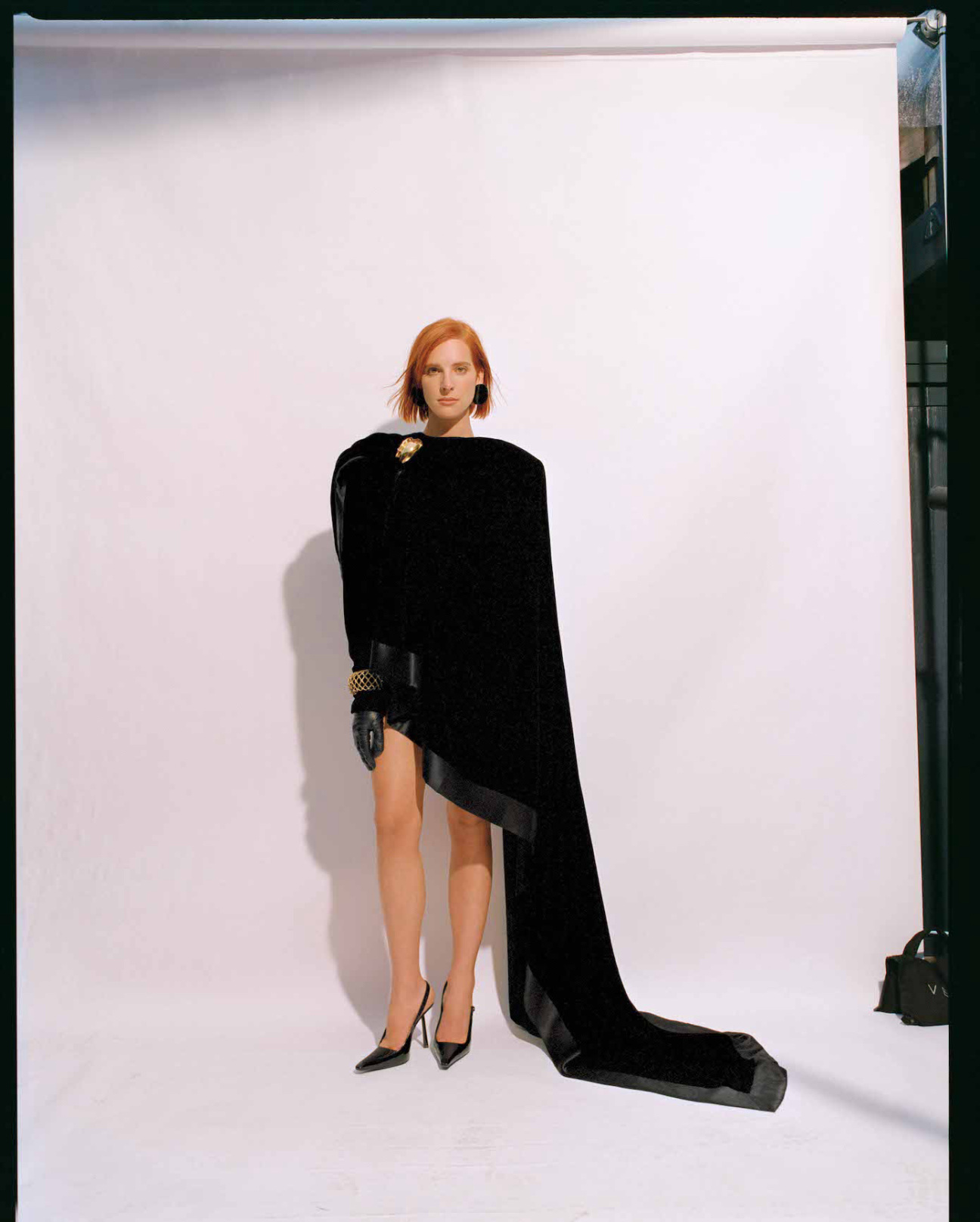
SIVAN: Self-censorship got in the way for me as a kid, regardless of how good that fab feeling was. That sense of exploration came to me much later in life, and it’s still something I feel more comfortable doing in a work context than in an everyday context. Did you always have that gusto?
NEF: The same thing that keeps me captivated by fashion keeps me captivated by cinema and live performance. It’s not about the clothes—it’s about the person in the clothes. Not her name, or where she’s from, or what she looks like, but the way she moves in them, talks in them; the way they change her posture. I remember feeling this acutely when I walked my first runway show for Hood By Air a decade ago. Sometimes, other people see you in ways that are more expansive than the way you see yourself, which can be scary. Have you ever felt clocked in that way and been inspired?
SIVAN: Yes, when I was making the “Bloom” music video. Jacob Bixenman was creative directing me, unofficially, and he saw something in me that excited but also completely terrified me. I was surprised by how self-conscious I became when I put on my first look for that project. There are a few makeup products that push me to a point where I feel like another person, or that reveal a facet of myself that I was unaware of previously. I put on mascara and lipstick, and all of a sudden, she’s present. In that moment, I felt terrified of myself, like I was 12 years old again. The second we started rolling, I felt better than I ever have in my life. It was because all these incredible people—Jacob, Bardia [Zeinali, director], James Kaliardos [makeup artist]—saw something in me that I was deathly afraid of.
NEF: First time in drag, courtesy of James Kaliardos. It could get a lot shabbier than that, girl.
SIVAN: That’s true. You’re an endless source of references for me. Are there any specific influences that you keep returning to?
NEF: When I’m getting into the goop with my friends, I start speaking strictly in references and memes—like ancient, crunchy YouTube. It helps me express things I don’t necessarily have the words for, but sometimes I hide behind it. I think a lot of people in our generation don’t feel comfortable speaking in our own voice or expressing our own ideas.
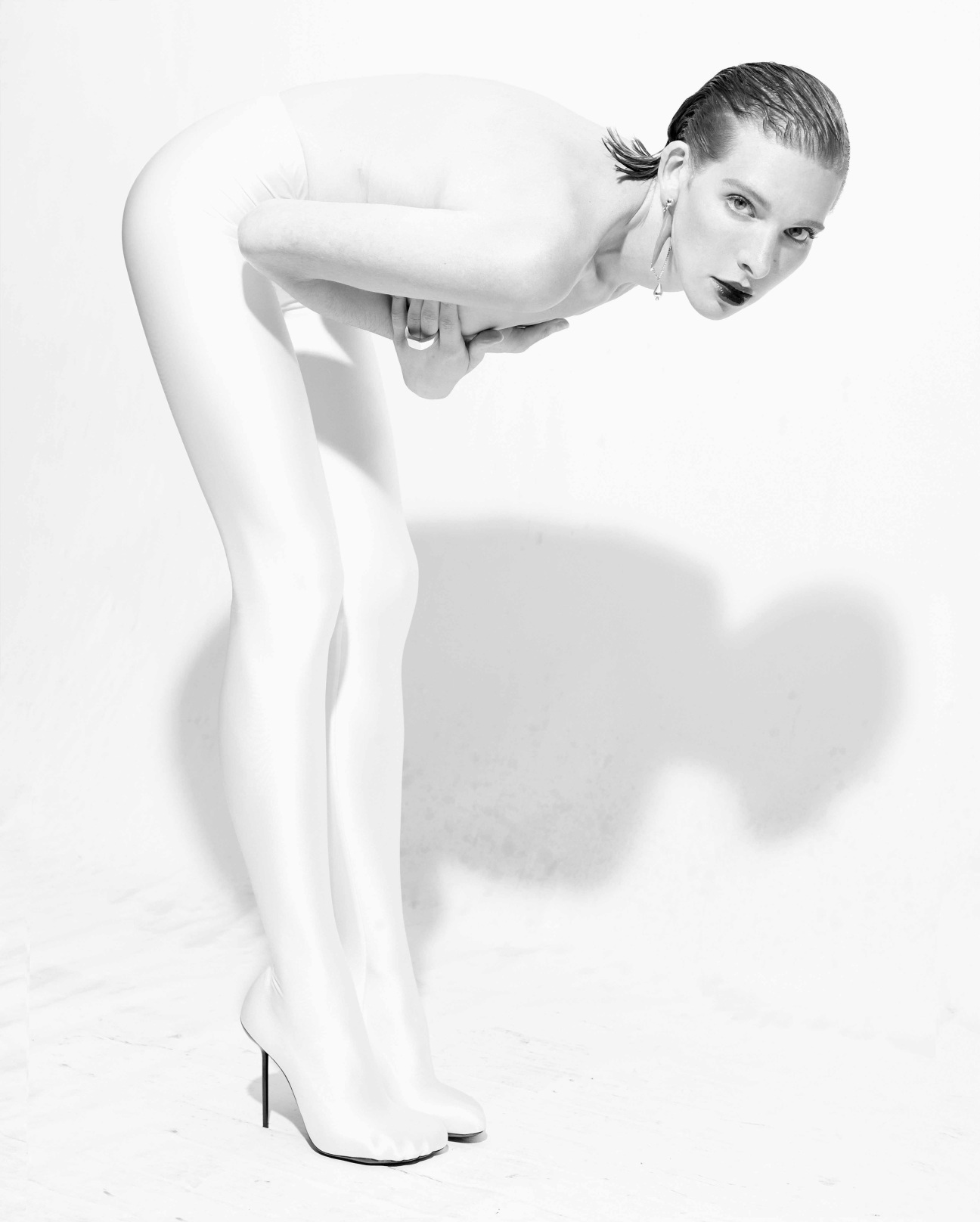
SIVAN: I completely agree. What about when it comes to fashion? Do you actively seek out references and inspiration for what you wear?
NEF: At this point, I’ve been in fashion longer than I was out of it. But the core of my fashion knowledge comes from being far outside of it as a suburban high schooler on the Internet at the dawn of Style.com and fashion LiveJournals, which then bled into Tumblr. I watched Alexander McQueen’s Spring/Summer 2010 "Plato’s Atlantis," the first fashion show ever to be live-streamed—which was also where Lady Gaga debuted “Bad Romance.” That was insane. Remember the armadillo shoes? That moment is what gave me the delusion that I could just show up to fashion week, which I did. I arrived in New York and just snuck into shows. I would spot people I thought were cool and wait for them to get drunk so I could ask them if they needed an intern. It was fairly effective. You never really get away from your first love in life. What’s your healing-the-inner-child frolic of the moment?
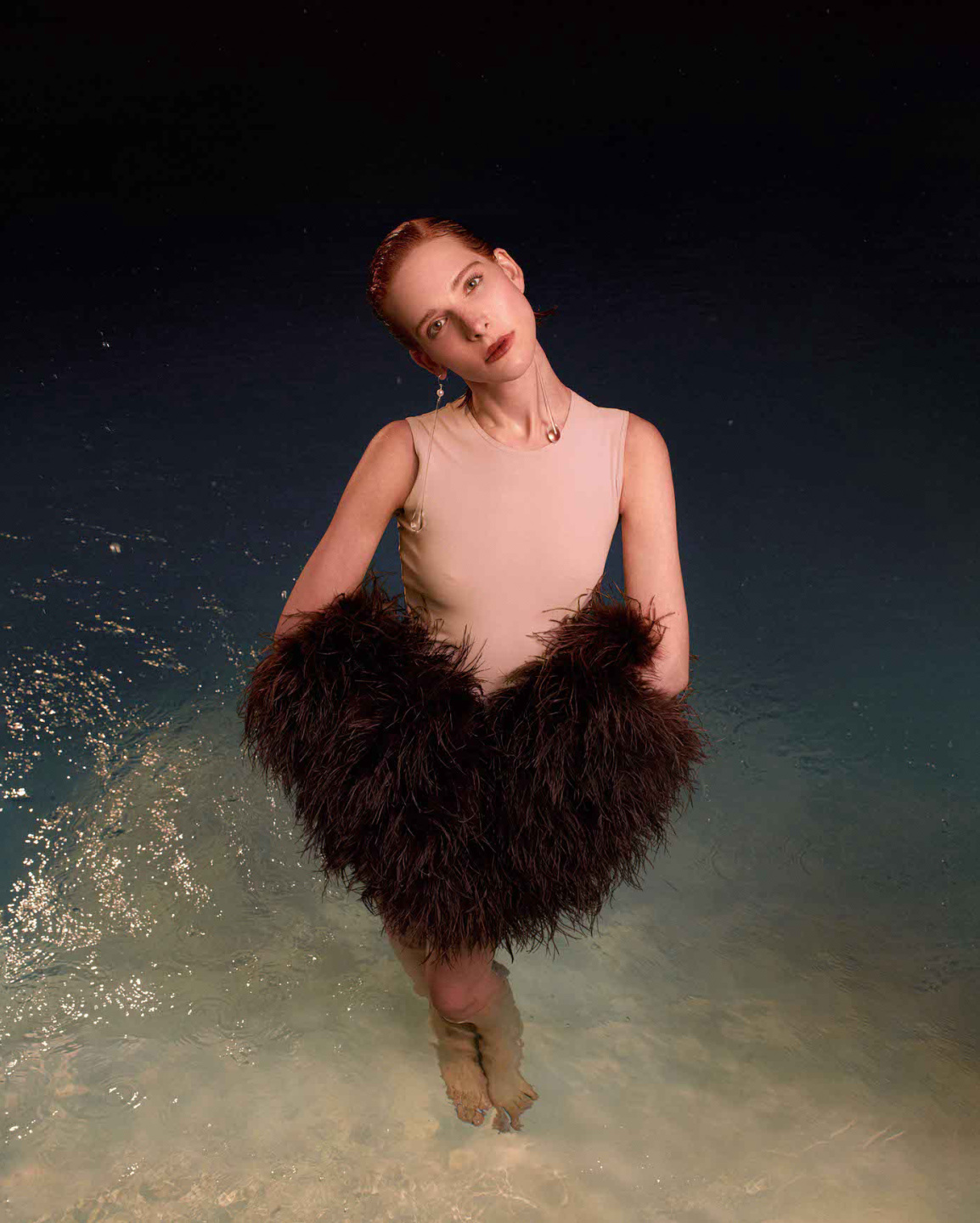
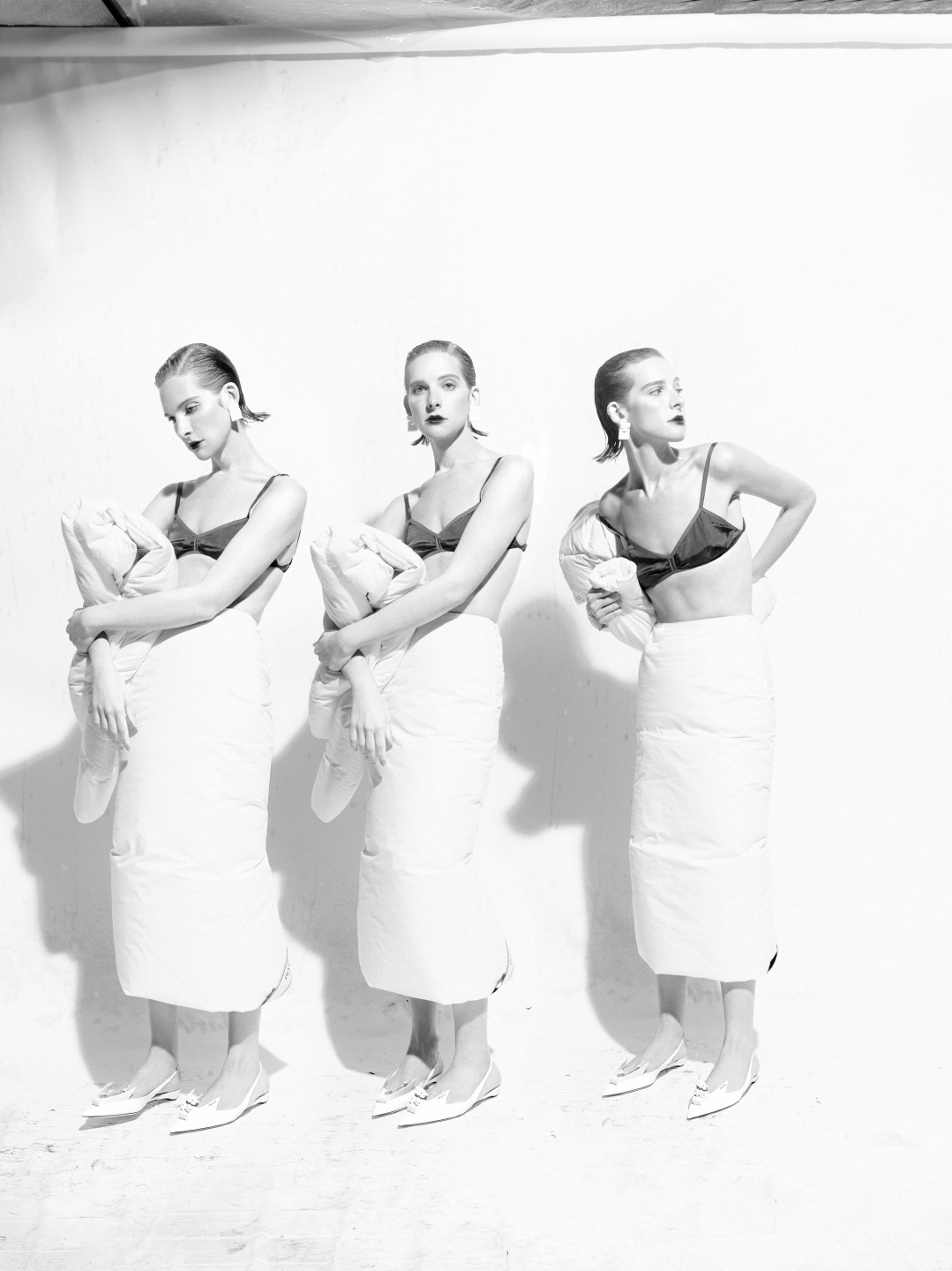
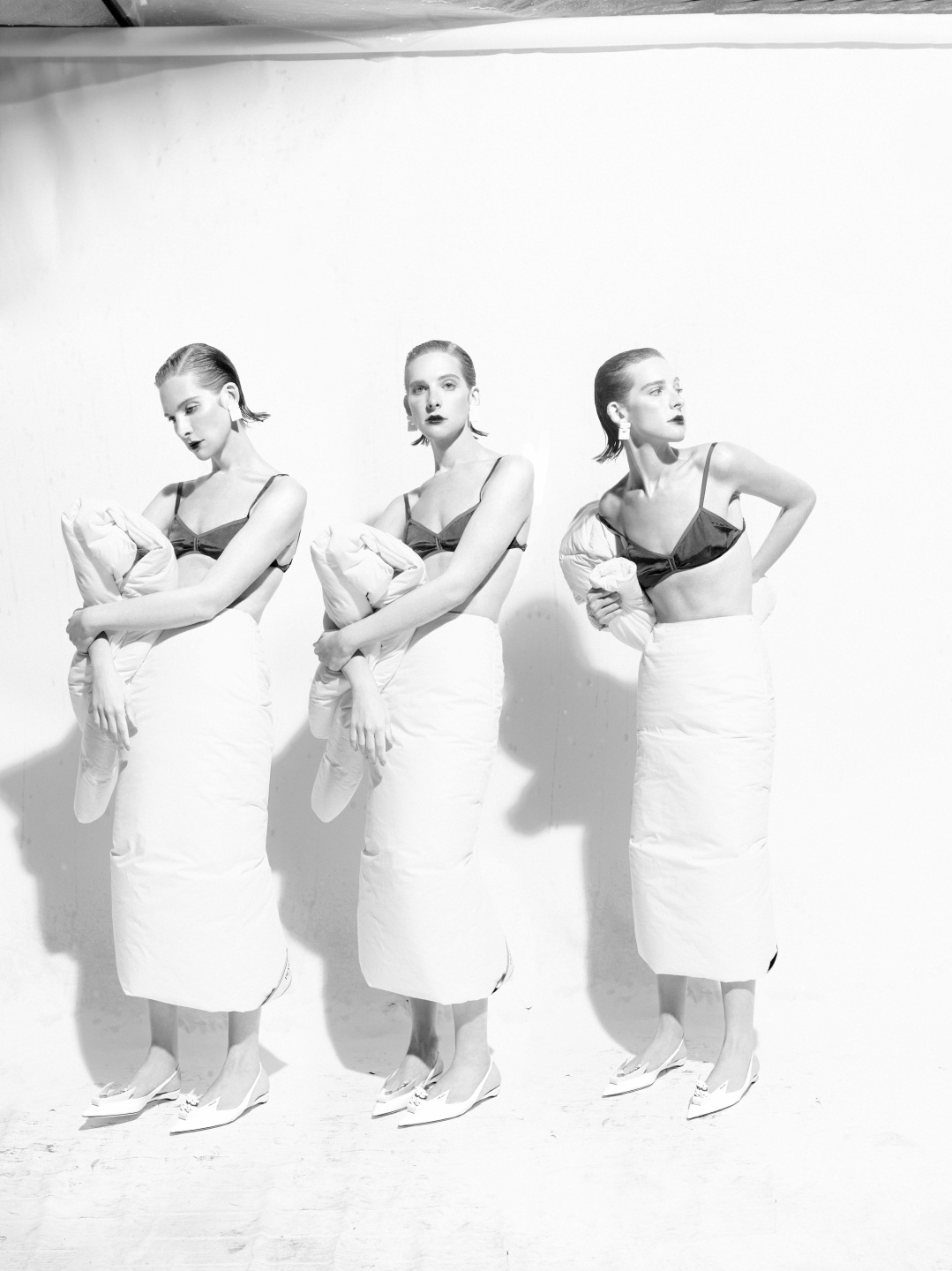
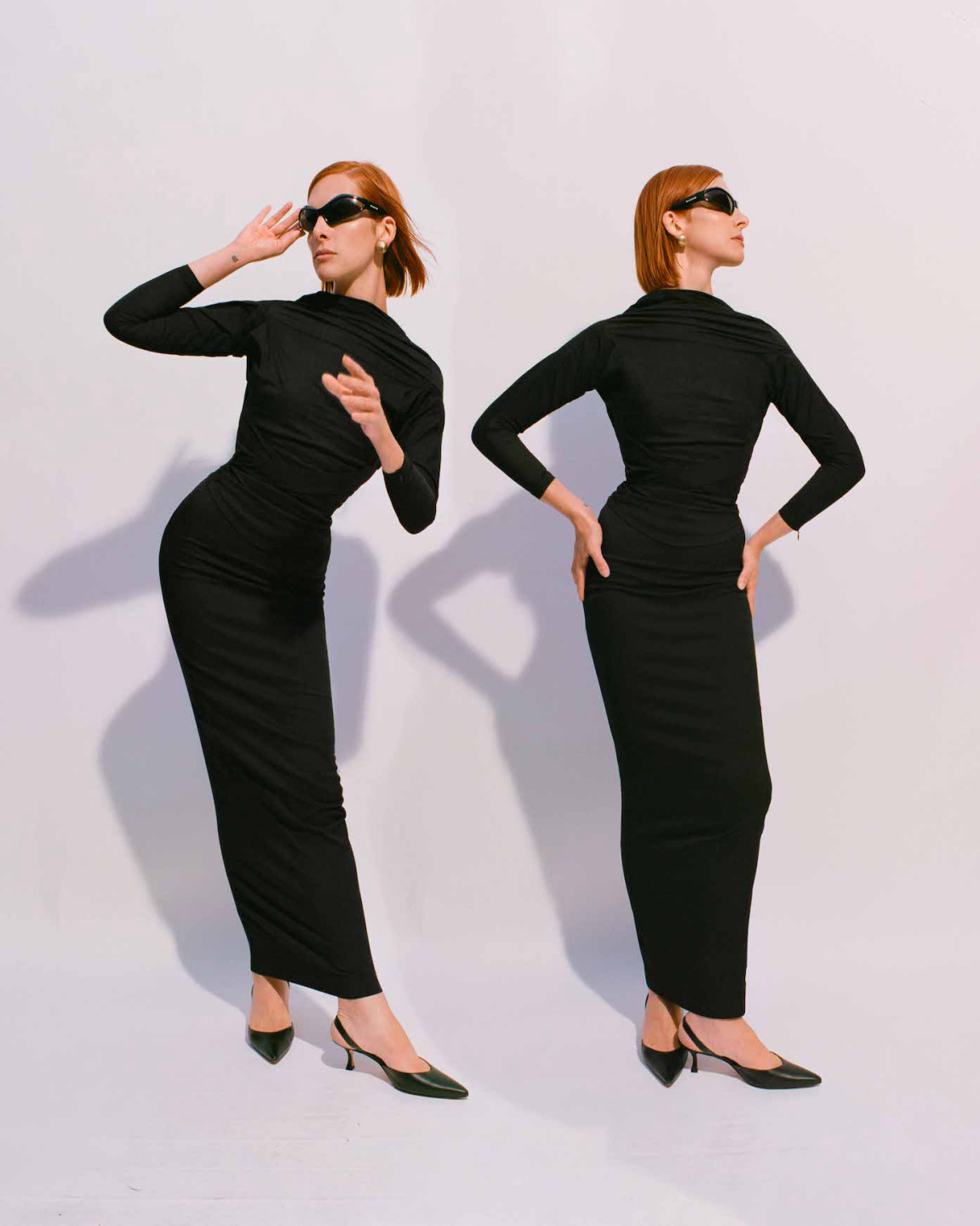


SIVAN: It’s dance. I have a pretty singular way of moving; everyone does. Mine is particularly noodly. My parents might be upset at me saying this, but in our house, it was always: “Troye can sing, and Tide can dance.” Interestingly, Tide— my brother—is a great singer, and I’ve recently moved past my insecurity about dancing. I had a lot of internalized homophobia; I used to be scared that people would think I was gay if I danced. The “Rush” music video was my first time doing choreography. Now it’s something I’m excited to do for the rest of my life, even if I’m shit.
NEF: You’re not shit! You devoured that choreo. I don’t want to kiss up, but “Rush” is a Fire Island sensation. That video was played no fewer than nine times in our house. It comes up algorithmically after any random gay YouTube playlist. It’s giving geo-location, like, These girls are on Fire Island? Let me give them something they can really take a bite out of, babe.
SIVAN: Oh my god, the highest compliment of all. Over the years, I’ve noticed how close you keep your friends. I’m wondering, what’s the through-line among all of your incredible people?
NEF: That’s a really good question to ask me right now, because I’ve just spent a month in friend summer camp. For me, ensuring the longevity of my friendships is this dance between—it sounds basic and corny, but it’s true—unconditional affirmation, support, love, and positivity; and truth, accountability, and transparent conversation.
It’s this idea of love as work. When you put in that work with someone, you earn the right to say things—not to hurt or chastise them, but to help them grow—and vice versa. I’m figuring out how to be a mother and sister to my friends, as well as a companion. That’s part of what it means to build meaningful connections—in our community specifically. The rule book we were raised with, regardless of good intentions, wasn’t written for us.

SIVAN: That’s absolutely true. It’s on us to figure out a new way to do it.
NEF: That has become the most important thing in the world to me. Everything else could be taken away, but as long as I have my people, I can live. It sounds silly to say out loud, but I’m embracing the cringe.
Purchase a copy of CULTURED's September issue, featuring cover star Hari Nef, here.
Hair by Sergio Estrada
Makeup by Michaela Bosch
Styling Assistance by Kennedy McNiel
Casting by Tom Macklin
Produced by Marcos Fecchino
Post-Production by Helen Studios


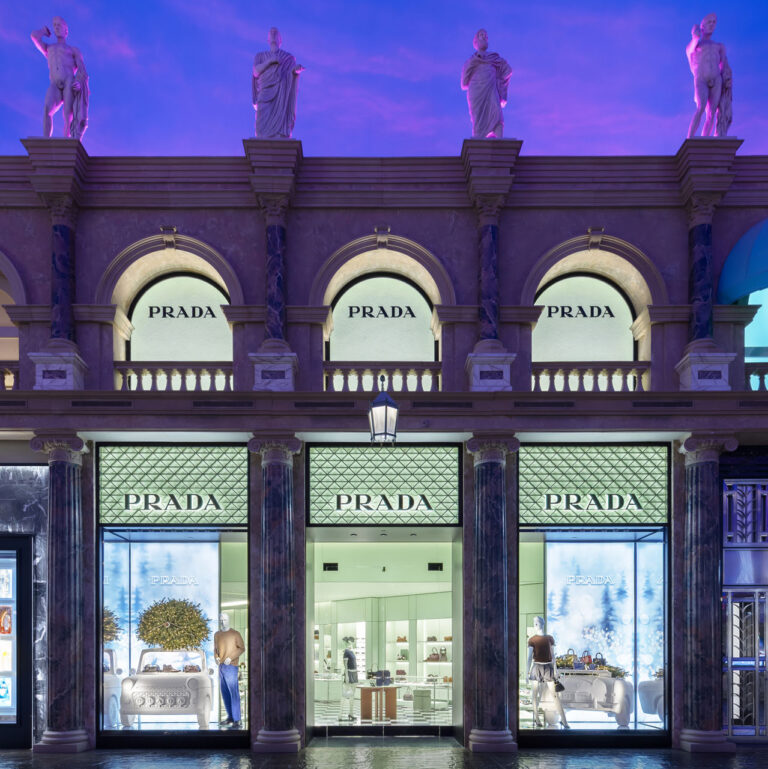
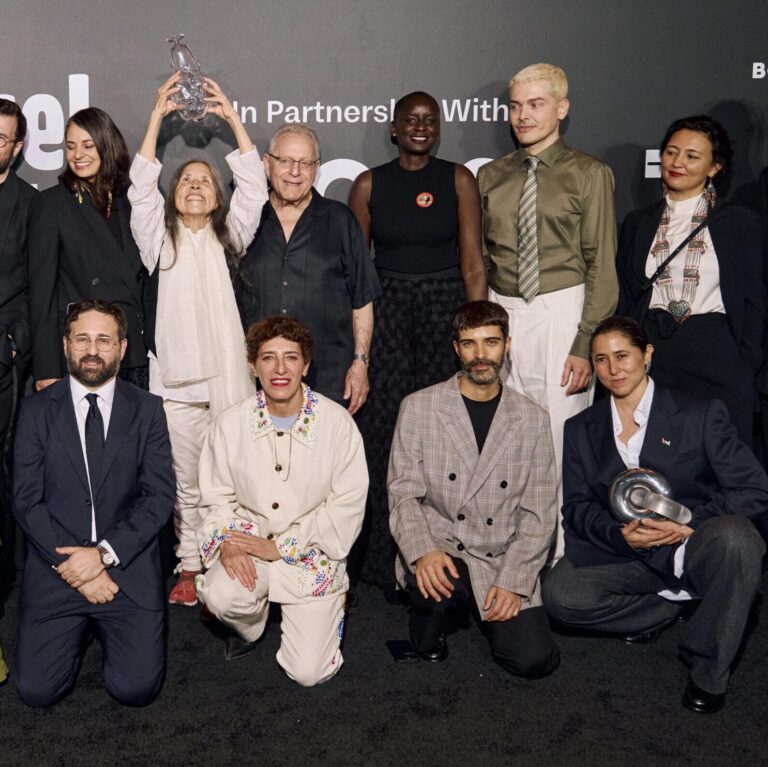

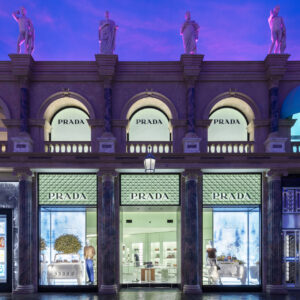
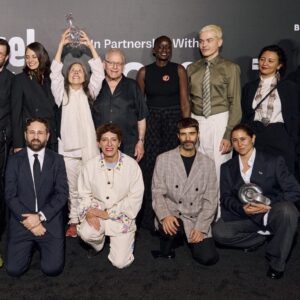



 in your life?
in your life?

